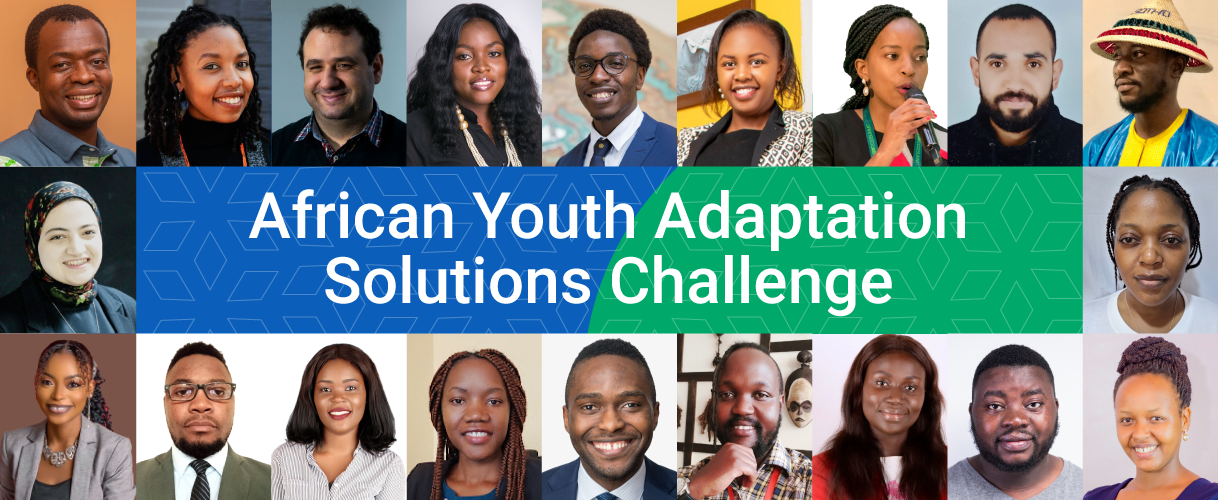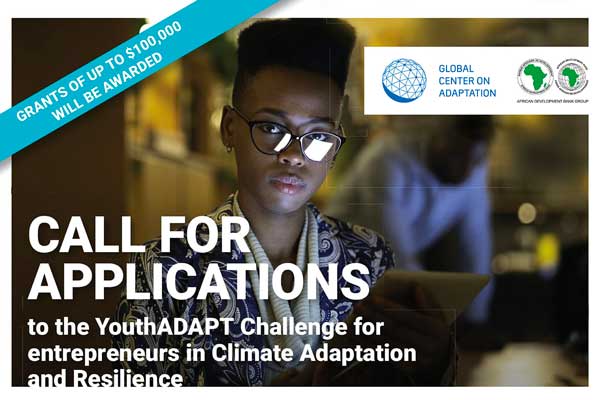
AAAP in the Media
Displaying 1 - 3 of 3
Conakry city climate stress test
Currently, Africa’s infrastructure needs are around USD 130–170 billion a year, with an investment gap of over 50–60% of that amount. Making Africa’s infrastructure resilient adds only an average of 3% to total costs, but every $1 spent could yield $4 of benefits.
The Africa Infrastructure Resilience Accelerator (Pillar 2 of the Africa Adaptation Acceleration Program (AAAP)) focuses on accelerating infrastructure resilience efforts on the continent. It will strengthen the enabling environment and provide the technical support to scale up investment in resilient infrastructure. It will also ensure that new and existing infrastructure uses nature-based solutions and create positive socioeconomic impacts and green jobs. By 2025, Pillar 2 of the AAAP aims to scale up investment at national and city level for climate-resilient infrastructure in key sectors such as water, transport, energy, and waste management, and integrate resilience in up to 50% (by value) of new infrastructure projects.
The City Adaption Accelerators (CAAs) are carrying out Rapid Climate Risk Assessments in target cities, which aim to improve climate adaptation and build resilience in urban areas.
The primary purpose of the RCRAs is to inform the identification and preparation of AfDB projects.
The RCRAs will inform the development of a comprehensive climate adaptation strategy and prioritization plan and are a crucial step towards the development of the CAA for each of the target cities. The overarching objective of the CAA is to create a shared strategic framework for GCA’s engagement in climate adaptation and resilience building in urban areas. The development objective of the CAA is to support cities and countries to strengthen their urban climate adaptation and resilience outcomes through enhanced (1) understanding; (2) planning; (3) investments; and (4) governance and capacity building.
- Outputs will inform future discussions surrounding climate adaptation investments
- GCA is demonstrating its unique value add in its ability to provide technical guidance to firms towards developing well-informed analyses
- Literature review of vulnerability and adaptive capacity assessments of cities to climate change
- Scoping of past and current initiatives and key stakeholders relevant for adaptation and resilience building in cities
- City Scan: rapid review of actions around climate hazard and risk assessments and more locally focused assessments of vulnerability and adaptive capacity
- Rapid Climate Risk Assessment: an overview of the key climate hazards and associated risks; will indicate whether an in-depth climate risk assessment is required.
- City Scoping: provides insight into past and current initiatives relevant for adaptation and resilience building and identifies key stakeholders and relevant initiatives
As part of the CAA, the RCRAs will contribute to the following impacts:
- Strengthened urban climate risk management in cities and their hinterlands
- Improved climate adaptive spatial planning at the municipal and regional levels
- Enhanced water resources management for more equitable access to ecosystem benefits
- Enhanced resilience, consistency, inclusiveness and integration of urban drinking water, sanitation and solid waste management services
- Improved urban liveability and public health due to a reduction in climate risks stemming from heat stress and disease
€40,000
Reinforcing Resilience to Food and Nutrition Insecurity in the Sahel (P2-P2RS)
The Sahel, which lies between the Sahara Desert to the north and tropical savannas to the south, is one of the largest semi-arid/arid sub-regions globally. As such, the region is highly vulnerable to climate change and other uncertainties. The impacts of climate change may have critical socio-economic consequences for the Sahel, including poor agricultural yields, increased frequency of natural disasters. Already, the number of people in the Sahel suffering from chronic food and nutrition insecurity, poverty and vulnerability to the effects of climate change is rising steadily.
A lasting solution to food and nutrition insecurity in the Sahel requires building resilience to climate change, long-term agricultural sector financing and developing trade and regional integration. Sustained, longer-term investments in household resilience can significantly reduce the cost of emergency assistance, ultimately breaking the cycle of recurring famine. This is the most cost-effective intervention option which meets the basic needs and preserves the dignity of the populations of the Sahel. This idea is central to the Programme to Build Resilience to Food and Nutrition Insecurity in the Sahel (P2RS)
The overall objective of the P2-P2RS is to contribute to the substantial improvement of the living conditions and the food and nutritional security of the populations of the Sahel region.
Specifically, the program aims to i) strengthen the resilience to climate change of agro-sylvo-pastoral producers, including through promotion of climate-smart agricultural technologies in the Sahel and the development of climate intelligent villages; ii) develop the agro-sylvo-pastoral value chains, including through the development and improvement of hydro, meteorology and climate services; and iii) support regional institutions (CILSS, APGMV, CCRS) to strengthen adaptive capacity in the Sahel.
- Design digital adaptation solutions (Digital Climate Advisory Services, DCAS) for the Sahel context
- Investment readiness and infrastructure, institutional and farmer capacity needs for DCAS
- Feasibility study to integrate DCAS into agricultural extension and agrometeorological advisory to smallholder farmers and pastoralists
- 1 million rural households have access to digital or data-enabled climate-smart technologies
- 500,000 smallholders have adopted adaptation practices
- 5 million smallholders have access to climate services;
- Development and improvement of hydro, meteorology and climate services
- The development of climate-intelligent villages
- Promotion of climate-smart agricultural technologies in the Sahel
- Resilience to food and nutrition security built for the targeted populations
USD 300 million
Global Center on Adaptation and African Development Bank call for applications for the African Youth Adaptation Solutions Challenge

 The Global Center on Adaptation (GCA) and the African Development Bank have launched a call for applications for the first edition of the African Youth Adaptation Solutions (YouthAdapt) Challenge.
The Global Center on Adaptation (GCA) and the African Development Bank have launched a call for applications for the first edition of the African Youth Adaptation Solutions (YouthAdapt) Challenge.
The call encourages young entrepreneurs, innovators from micro, small and medium-sized enterprises (MSMEs) and other youth-led and youth-owned enterprises in Africa, to implement solutions for building resilience and adapting to the adverse impacts of climate change. Young entrepreneurs between the ages of 18 and 35 are invited to respond to the call for the expression of interest and submit their business plan through the official submission portal.
With a strong focus on youth and gender, winners of the YouthAdapt Challenge will be awarded business grants of up to $100,000 each and the opportunity to participate in a 12-month business accelerator program to help them scale up their businesses, deepen their impact and create decent jobs. In addition, the winning youth-led enterprises will be provided with mentorship and support to expand partnerships, knowledge sharing and learning through a network of young entrepreneurs in climate adaptation.
The African Youth Adaptations Solutions Challenge is part of the ‘Empowering Youth through Jobs and Entrepreneurship’ pillar of the Africa Adaptation Acceleration Program (AAAP), a strategic partnership between the GCA and the African Development Bank aimed at galvanizing climate-resilient actions through a triple win approach to address the impacts of Covid-19, climate change and the economy.
The competition aims to leverage the resources, complementary expertise and networks of both organizations to support the ‘missing-middle’ of mid-sized companies in the areas of funding, thereby promoting sustainable climate adaptation and resilience practices on the African continent.
Announcing the YouthAdapt Challenge to a group of global leaders at the High-Level Dialogue: The Adaptation Acceleration Imperative for COP26 held in Rotterdam, Netherlands on Monday 6th September 2021, Patrick Verkooijen, CEO of the Global Center on Adaptation said: “Our vision is to empower one million young people in Africa with the financing and skills they need to pursue jobs and careers in climate adaptation. With this new challenge we aim to unlock the business opportunities in adaptation action by innovative youth-owned enterprises and prepare a new generation of African youth for the transition towards green and climate-resilient development.”
“The YouthAdapt Challenge will unleash the entrepreneurial drive and capacities of African youth to grow their businesses, address the continent’s pressing climate challenge and create decent jobs, building a more climate-resilient Africa”, said Akinwumi Adesina, African Development Bank’s President, affirming the Bank’s commitment to invest in the youth.
Twenty youth-led enterprises will be shortlisted at the end of the application window on 6th October 2021 and invited to submit videos for a jury panel review ahead of the finals and an award ceremony at COP26 in Glasgow on November 8, 2021. At this event, ten winners will be selected, 50% of which will be women-led enterprises.